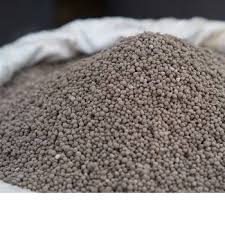
Nov . 04, 2024 17:25 Back to list
High-Quality Bulk Potash Fertilizer Available for Purchase from Trusted Factory Suppliers
The Importance of Bulk Potash Fertilizer for Agriculture A Closer Look at the Manufacturing Process
Potash fertilizer plays a vital role in enhancing soil fertility and boosting agricultural productivity. As a significant source of potassium, it supports various plant functions, including water regulation, nutrient transport, and photosynthesis. In recent years, the demand for bulk potash fertilizer has surged, making it an essential product for farmers worldwide. This article will explore the importance of bulk potash fertilizer, the manufacturing process, and its benefits to agriculture.
Understanding Potash Fertilizer
Potash refers to a range of potassium-containing fertilizers, primarily consisting of potassium chloride (KCl). Potassium is one of the three primary nutrients required by plants, alongside nitrogen and phosphorus. While potassium is abundant in nature, plants often cannot access it in sufficient quantities from the soil alone, making the application of potash fertilizers crucial for optimal growth.
The Role of Potassium in Plant Growth
Potassium is integral to several growth processes in plants. It aids in water regulation by controlling the opening and closing of stomata—tiny pores on leaves that facilitate gas exchange. This regulation helps plants withstand drought and disease while promoting overall vigor. Additionally, potassium is essential for the synthesis of proteins and starches, which are critical for plant structure and energy storage. The presence of potassium in the soil directly influences crop yield and quality, making its availability pivotal for farmers.
Bulk Potash Fertilizer Manufacturing Process
The production of bulk potash fertilizer involves several stages, ensuring that the final product meets agricultural standards. The primary source of potash is potash mineral ores, such as sylvite and carnallite. Here’s a brief overview of the manufacturing process
1. Mining Potash ores are extracted from underground mines or surface mines. The method of extraction depends on the depth and location of the ore deposits.
2. Crushing and Grinding Once the ores are mined, they undergo crushing and grinding to create a fine powder, increasing the surface area for further processing.
3. Salt Separation The ground material is mixed with water to create a slurry, from which salt and insoluble impurities are separated. This process typically involves flotation or leaching techniques.
bulk potash fertilizer for sale factory

4. Crystallization The pure potassium salts are then concentrated through evaporation, resulting in the formation of crystal structures. The crystallization process determines the size and quality of the potash granules.
5. Drying and Granulation The potassium chloride crystals are dried to reduce moisture content. Subsequently, they are granulated into uniform-sized particles, which enhances application efficiency and ensures even distribution when spread over fields.
6. Packaging Finally, the bulk potash fertilizer is packaged for distribution. It can be stored in large containers or bags, ready for transport to retailers or directly to farms.
Benefits of Bulk Potash Fertilizer
Investing in bulk potash fertilizer offers several advantages for agricultural producers
- Cost-Effectiveness Buying in bulk reduces the cost per unit, making it more economical for farmers, especially those managing large-scale operations.
- Improved Crop Yields The application of potash fertilizer has been shown to enhance yields in various crops, contributing to food security and farm profitability.
- Soil Health Regular application of potassium helps maintain soil health and fertility, leading to sustainable farming practices.
- Flexibility Bulk delivery allows farmers to receive larger quantities tailored to their specific needs, accommodating various planting schedules and crop types.
Conclusion
Bulk potash fertilizer is more than just a product; it is a vital component of modern agriculture. As farmers strive to meet the growing global food demand, the importance of reliable and efficient fertilizer solutions cannot be overstated. The manufacturing process ensures that high-quality potash is available for agricultural use, ultimately supporting food production and sustainability. By investing in bulk potash fertilizers, farmers not only enhance their crops but also contribute to the broader goal of agricultural resilience and sustainability.
-
Premium Organic Manure Compost for Eco Gardens
NewsAug.01,2025
-
Organic 10-10-10 Fertilizer | Balanced Plant Nutrients
NewsJul.31,2025
-
Premium Amino Acid Fertilizer | Rapid Plant Growth Booster
NewsJul.31,2025
-
10 10 10 Fertilizer Organic—Balanced NPK for All Plants
NewsJul.30,2025
-
Premium 10 10 10 Fertilizer Organic for Balanced Plant Growth
NewsJul.29,2025
-
Premium 10 10 10 Fertilizer Organic for Balanced Plant Growth
NewsJul.29,2025
